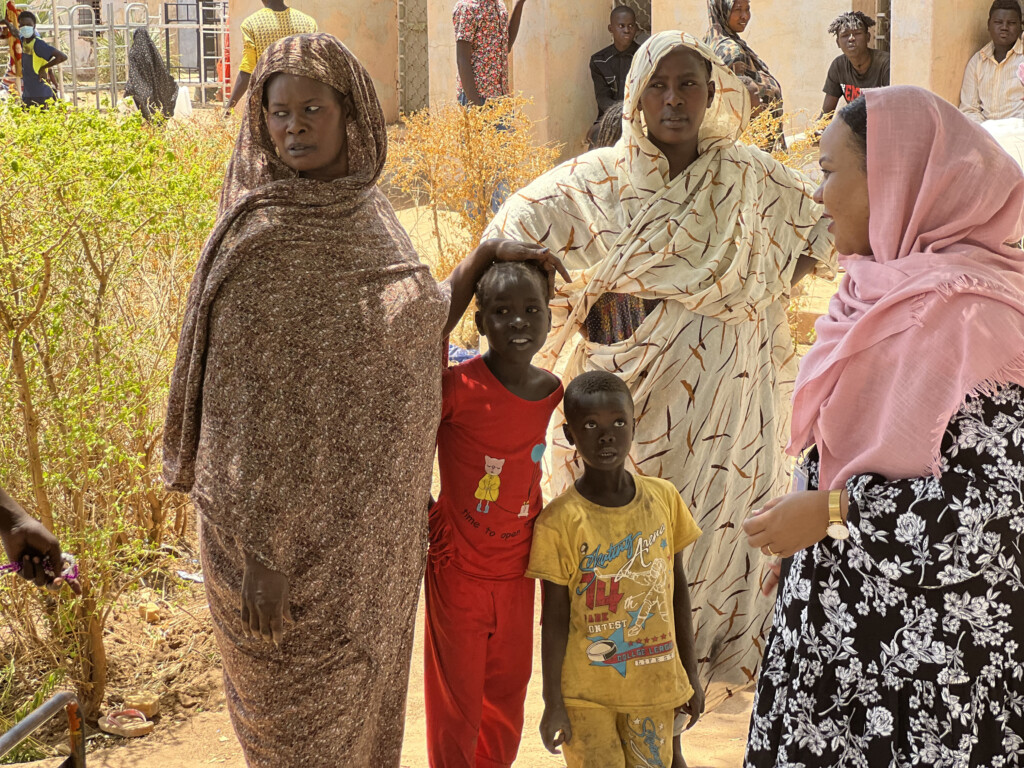Sudan humanitarian crisis unfolds amid El Gezira exodus

People displaced by the fighting in the Sudan capital Khartoum wait in El Gezira for emergency food distribution in El Gezira (File photo: WFP / Lumia Elhag)
For the third consecutive day, Wad Madini the state capital of El Gezira has become a battleground for Sudan’s warring parties, the Sudanese Armed Forces (SAF) and the paramilitary Rapid Support Forces (RSF). The city, once a haven for those fleeing the initial Khartoum clashes, has now itself been plunged into chaos. SAF-RSF warfare, power outages, communication breakdowns, and a growing humanitarian crisis mire Wad Madani.
Following the numerous battles taking place in El Sharafa, Abu Haraz, El Ghanoum, and the El Riyadh and Hantoub neighbourhoods, a displacement crisis to neighbouring states such as Sennar, El Gedaref, and Kassala ensued.
El Gedaref state, in particular, has seen a significant movement of people fleeing the violence in Wad Madani. Activists state that a sharp increase in medicines and medical equipment prices, alongside long queues at petrol stations.
Sudanese medical activists paint a bleak picture of the humanitarian situation, with hospitals emptied, medical resources depleted, and the displacement of doctors and health personnel.
The Sudanese Doctors Committee issued an urgent appeal to save vulnerable groups yesterday, including 251 children and 91 surrogate mothers who had been transported by staff of the International Committee of the Red Cross (ICRC) from the Maygoma orphanage in Khartoum in June, which are now caught in the crossfire.
Those now re-displaced by the Wad Madani clashes embarked on an arduous journey away from the city-turned-battle arena. Reports state that internal transportation challenges and rising ticket prices are exacerbating the current exodus.
Teamed with the difficulties in travel and the heavily armed deployment from both sides, a severe bread crisis caused by the power outage, led to the closure of ovens yesterday.
Amid these challenges, the SAF reportedly deployed significant reinforcements and implemented strict security measures, closing key bridges and entrances to the city.
The commander of the First Infantry Division claimed victory over the RSF, alleging the RSF’s attempt to storm Wad Madani was a “desperate move to compensate for losses in Khartoum”.
However, some of those recently displaced remain sceptical, expressing doubts about the complete withdrawal of the RSF from the eastern parts of the city.
Yassir Arman, the founder of the SPLM-N-Democratic Revolutionary Movement, raised concerns about the alarming reports of detentions on ethnic and geographical grounds having surfaced recently, and the potential of this “conflict taking on an ethnic and societal dimension”. Arman condemned such arrests, urging Sudanese people to resist any attempt to escalate the conflict along ethnic and racial lines.
Internationally, the US State Department’s spokesperson issued a press statement on Saturday, urging the RSF to avoid targeting civilians and cautioning the Sudanese military against actions that jeopardise civilian lives.
They state that there were “troubling reports” indicating that “elite RSF units” have travelled to Wad Madani to reinforce attacks.
The US State Department added that the disruptions of humanitarian aid efforts would only “deepen the complexity of an already dire situation”.











 and then
and then